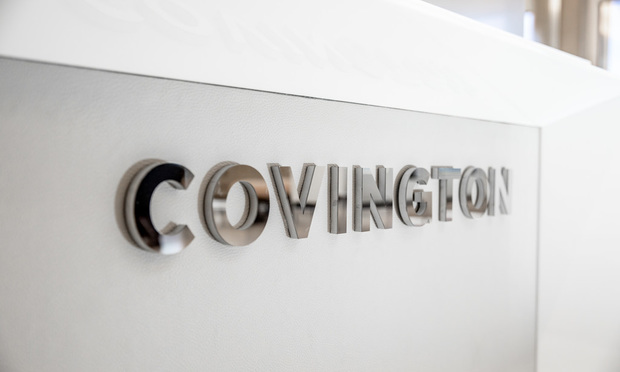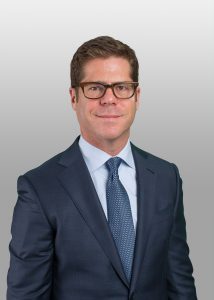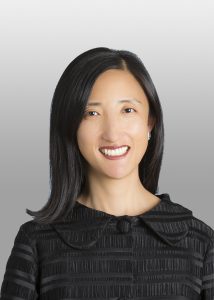Covington Leaders Reflect on Landing Am Law's California Regional Litigation Award
Covington & Burling's Clara Shin and Mitchell Kamin discuss the cases that led the firm to win The American Lawyer's California Regional Litigation Department of the Year in December.
January 15, 2019 at 12:12 PM
6 minute read
 (Photo: Jason Doiy/ALM)
(Photo: Jason Doiy/ALM)
The American Lawyer last month named Covington & Burling the California Regional Litigation Department of the Year for the body of cases handled by the firm's litigators in California from Aug. 1, 2016, through April 30, 2018.
Among the cases the firm handled that period was an internal investigation at Uber, spurred by a former engineer's publishing of sexual harassment allegations at the company. Uber's board unanimously approved Covington's 47 post-investigation recommendations and made suggested changes to senior leadership, board oversight, internal controls, training, diversity and inclusion efforts, and human resources policies.
The firms also fought back on behalf of the city of Los Angeles when the Department of Justice tried to link federal funding to a jurisdiction's willingness to cooperate with ICE on immigration matters. Covington litigators secured a national injunction barring the policy changes in the Central District of California. The firm also represented the University of California Board of Regents in their successful bid for an injunction blocking the Trump administration's rollback of the Deferred Action for Childhood Arrivals program.
The Recorder recently caught up with Clara Shin and Mitchell Kamin, the co-chairs of the firm's commercial litigation practice group—based in San Francisco and Los Angeles, respectively—to discuss the firm's approach to litigation and the California legal market. What follows has been edited for length and clarity.
Looking at the entrants this year for the California Litigation Department of the Year, Covington has among the largest California litigation departments of what I'll call the non-native firms—firms that have their roots somewhere outside the state. Only Sidley Austin, Reed Smith and Jones Day have a greater number of litigators in California among that group, according to the numbers I've seen. Frankly, that surprised me a bit. I didn't realize Covington had that many litigators in the state. Do you get that reaction often from clients and competitors?
Clara Shin: Growing Covington's footprint in California has been a strategic imperative for the firm, and we are achieving this goal in a deliberate manner. The firm has focused on building and strengthening relationships with an expanded West Coast client base for whom we handle important legal challenges from inception through trial.
With over 150 lawyers in California, we advise our clients on a broad range of practice areas including privacy and data security, white collar criminal defense and investigations, intellectual property, insurance coverage litigation, and all manner of complex commercial disputes. The firm's associates are another competitive advantage; a client for whom we recently completed a trade secret arbitration described Covington associates as “a truly great team who delivered excellent work.”
What has been the firm's overall approach to the California market and litigation in particular? How does the firm's growth in litigation in California fit within its greater overall strategy?
 Mitch Kamin (Courtesy photo)
Mitch Kamin (Courtesy photo)Mitch Kamin: Covington offers clients something they cannot find in California law firms—tremendous strength in litigation, investigations and corporate practices combined with deep knowledge of policy and policymakers as well as leading regulatory practices. This broad practice mix has allowed us to build broader, closer and more-enduring relationships with clients and individuals, for whom we can offer extensive value across multiple disciplines.
We have found that certain, highly-regulated California industries have particularly benefited from this combination, and our litigators in particular have worked with companies in entertainment and media, technology, life sciences and education sectors.
What struck the judges about your entry, beyond the overall results, was the fact that the firm handled high-profile matters for a string of California institutions: The state Senate, Uber, the City of Los Angeles, McKesson and UC. I know each client relationship is a story unto its own, but how has the firm made inroads here, especially with this group of clients which has deep, long-standing relationships with local firms?
 Clara Shin (Courtesy photo)
Clara Shin (Courtesy photo)Shin: Since opening its San Francisco office in 1999, Covington has handled high-profile and complex litigation matters for California institutions, and our attorneys have served in board and other leadership roles with California-based public interest and bar organizations.
In addition to internal promotions, Covington has also recruited lawyers who have well-known and well-established practices with deep roots in the local legal and business communities. For example, Dan Shallman had previously worked with California legislative leaders and was instrumental in the firm's work for the State Senate, and Mitch Kamin had a long relationship with Los Angeles city attorney Mike Feuer, which led to the firm's work in the sanctuary cities litigation.
Sophisticated clients also appreciate that Covington's regulatory, public policy and industry expertise adds significant value to the work we do in complex litigation. We have the ability to staff litigation matters with multidisciplinary teams that take advantage of the firm's market-leading regulatory practices and industry expertise.
In the matters handled for L.A., the state Senate and UC, the firm has found itself litigating against the current administration. Is litigating against the executive branch a comfortable place for a firm like yours—with Washington, D.C., roots and direct connections to the prior administration—to be?
Kamin: Since the firm's founding, Covington has worked with clients to develop legal strategies and responses to actions of the federal government. No matter the administration, clients will continue to face significant issues before the federal government that require experienced, skilled and nuanced legal counsel.
With one of the deepest benches of former government officials in private practice, Covington has a firm grasp of the regulatory landscape and the priorities of enforcement authorities. This absolutely helps us in tackling issues relating to how the government operates.
What sort of demands does landing an assignment like the Uber internal investigation put on a litigation department? How do you even begin to staff it?
Shin: For large, urgent matters like the Uber workplace culture investigation, we are able to build teams with lawyers from multiple offices with experience and substantive expertise, without any regard for who gets credit for the assignment. The Uber team was led by lawyers from San Francisco, Los Angeles and Washington and included experts in investigations, corporate governance, employment and commercial litigation.
This content has been archived. It is available through our partners, LexisNexis® and Bloomberg Law.
To view this content, please continue to their sites.
Not a Lexis Subscriber?
Subscribe Now
Not a Bloomberg Law Subscriber?
Subscribe Now
NOT FOR REPRINT
© 2025 ALM Global, LLC, All Rights Reserved. Request academic re-use from www.copyright.com. All other uses, submit a request to [email protected]. For more information visit Asset & Logo Licensing.
You Might Like
View All
US Patent Innovators Can Look to International Trade Commission Enforcement for Protection, IP Lawyers Say

Attorney of the Year Finalist: Michael Rubin, Latham & Watkins

John Hueston Appointed Monitor by CA Court Judge in Ruling on Veterans' Housing Case

Ex-Federal Prosecutor and White-Collar Defense Lawyer Joins Foundation Law Group
Trending Stories
- 1Uber Files RICO Suit Against Plaintiff-Side Firms Alleging Fraudulent Injury Claims
- 2The Law Firm Disrupted: Scrutinizing the Elephant More Than the Mouse
- 3Inherent Diminished Value Damages Unavailable to 3rd-Party Claimants, Court Says
- 4Pa. Defense Firm Sued by Client Over Ex-Eagles Player's $43.5M Med Mal Win
- 5Losses Mount at Morris Manning, but Departing Ex-Chair Stays Bullish About His Old Firm's Future
Who Got The Work
J. Brugh Lower of Gibbons has entered an appearance for industrial equipment supplier Devco Corporation in a pending trademark infringement lawsuit. The suit, accusing the defendant of selling knock-off Graco products, was filed Dec. 18 in New Jersey District Court by Rivkin Radler on behalf of Graco Inc. and Graco Minnesota. The case, assigned to U.S. District Judge Zahid N. Quraishi, is 3:24-cv-11294, Graco Inc. et al v. Devco Corporation.
Who Got The Work
Rebecca Maller-Stein and Kent A. Yalowitz of Arnold & Porter Kaye Scholer have entered their appearances for Hanaco Venture Capital and its executives, Lior Prosor and David Frankel, in a pending securities lawsuit. The action, filed on Dec. 24 in New York Southern District Court by Zell, Aron & Co. on behalf of Goldeneye Advisors, accuses the defendants of negligently and fraudulently managing the plaintiff's $1 million investment. The case, assigned to U.S. District Judge Vernon S. Broderick, is 1:24-cv-09918, Goldeneye Advisors, LLC v. Hanaco Venture Capital, Ltd. et al.
Who Got The Work
Attorneys from A&O Shearman has stepped in as defense counsel for Toronto-Dominion Bank and other defendants in a pending securities class action. The suit, filed Dec. 11 in New York Southern District Court by Bleichmar Fonti & Auld, accuses the defendants of concealing the bank's 'pervasive' deficiencies in regards to its compliance with the Bank Secrecy Act and the quality of its anti-money laundering controls. The case, assigned to U.S. District Judge Arun Subramanian, is 1:24-cv-09445, Gonzalez v. The Toronto-Dominion Bank et al.
Who Got The Work
Crown Castle International, a Pennsylvania company providing shared communications infrastructure, has turned to Luke D. Wolf of Gordon Rees Scully Mansukhani to fend off a pending breach-of-contract lawsuit. The court action, filed Nov. 25 in Michigan Eastern District Court by Hooper Hathaway PC on behalf of The Town Residences LLC, accuses Crown Castle of failing to transfer approximately $30,000 in utility payments from T-Mobile in breach of a roof-top lease and assignment agreement. The case, assigned to U.S. District Judge Susan K. Declercq, is 2:24-cv-13131, The Town Residences LLC v. T-Mobile US, Inc. et al.
Who Got The Work
Wilfred P. Coronato and Daniel M. Schwartz of McCarter & English have stepped in as defense counsel to Electrolux Home Products Inc. in a pending product liability lawsuit. The court action, filed Nov. 26 in New York Eastern District Court by Poulos Lopiccolo PC and Nagel Rice LLP on behalf of David Stern, alleges that the defendant's refrigerators’ drawers and shelving repeatedly break and fall apart within months after purchase. The case, assigned to U.S. District Judge Joan M. Azrack, is 2:24-cv-08204, Stern v. Electrolux Home Products, Inc.
Featured Firms
Law Offices of Gary Martin Hays & Associates, P.C.
(470) 294-1674
Law Offices of Mark E. Salomone
(857) 444-6468
Smith & Hassler
(713) 739-1250






